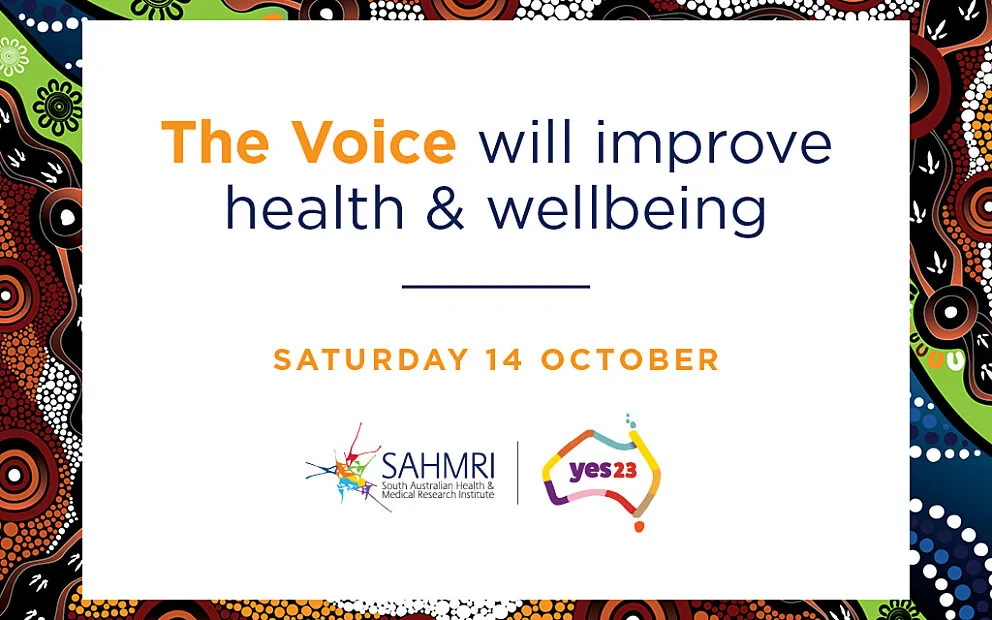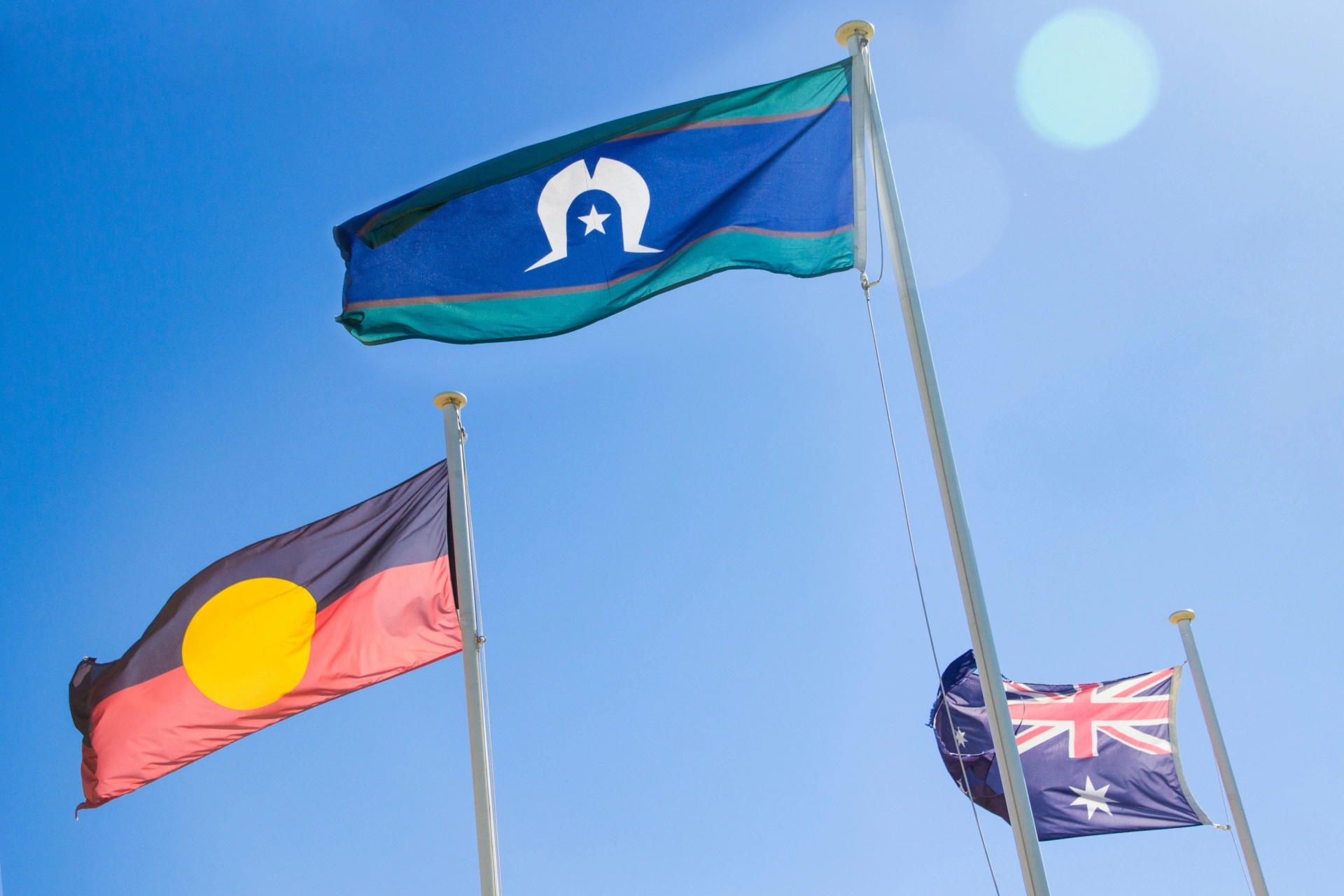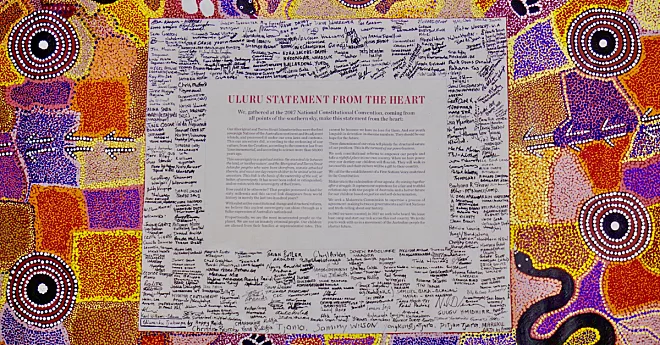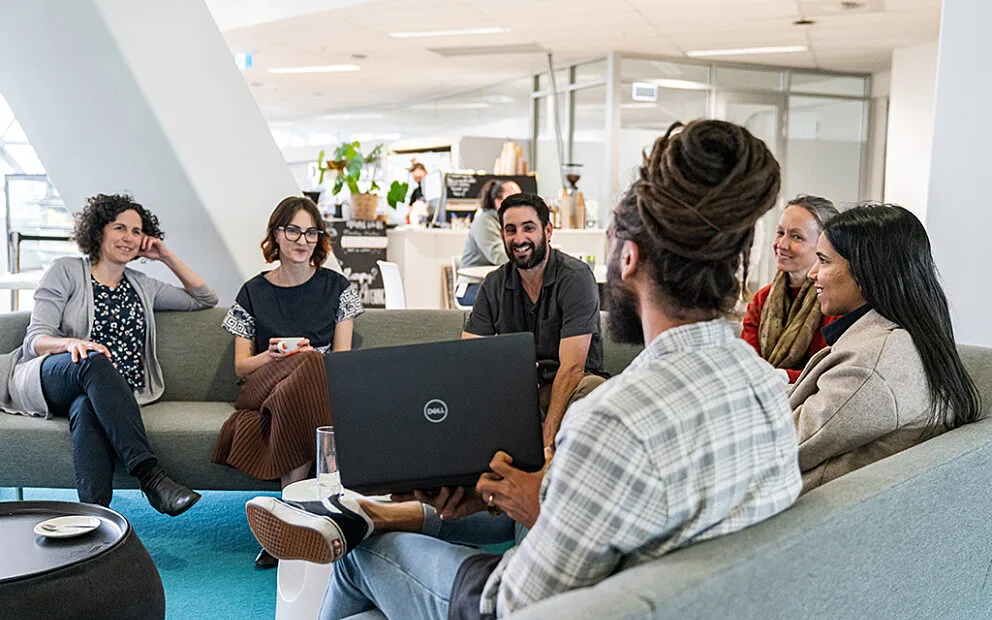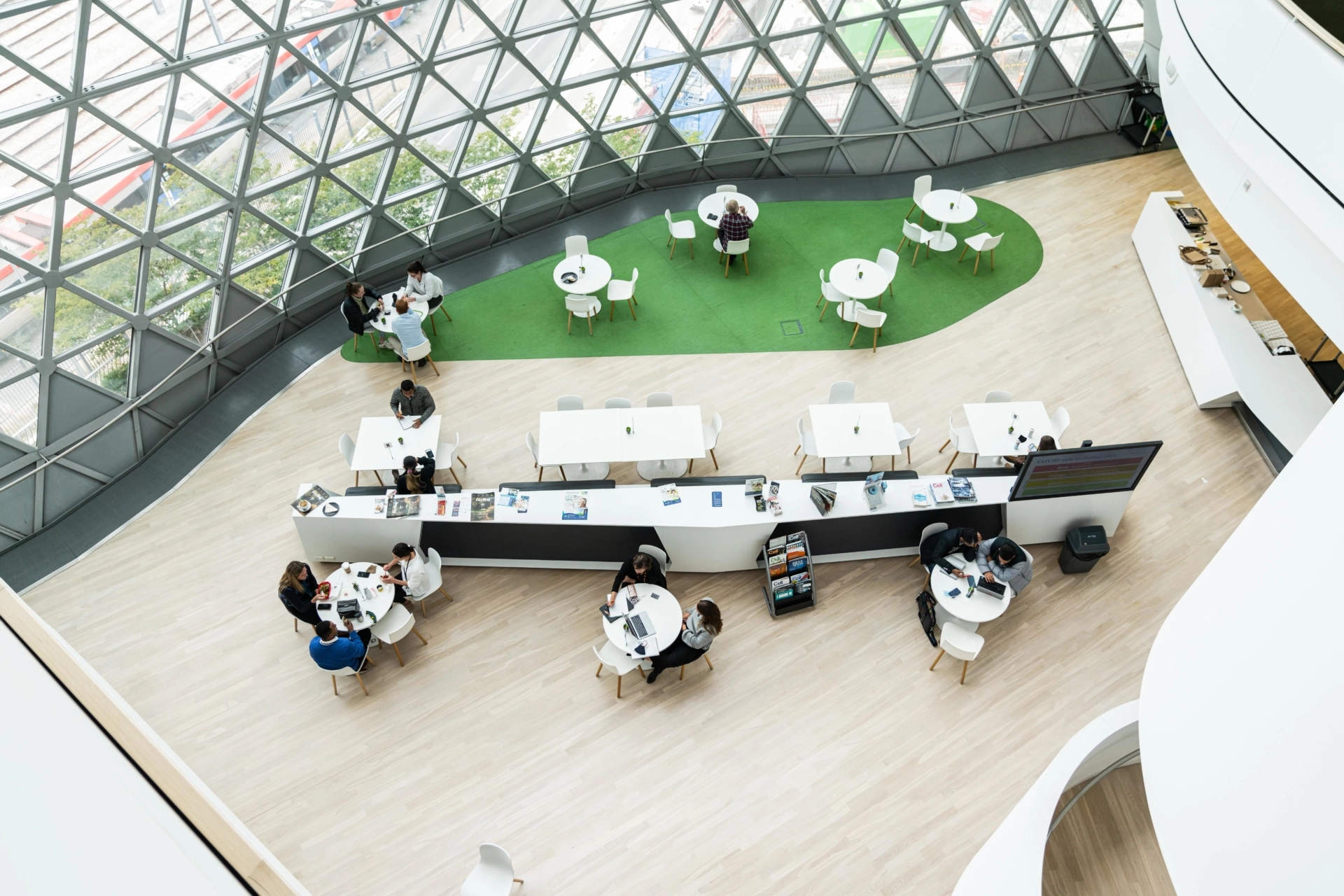是的 – так – Oui – آره – Ja – Yes
Astrid Melchers - a German-born migrant to Australia who now works with SAHMRI's Aboriginal Health Equity theme - shares her perspective on the upcoming Indigenous Voice to Parliament referendum
My neighbours and I are walking past a “Vote Yes” poster and Eleni*, a recent migrant to Australia, is wondering what it’s all about. I give her and Carlos* what I think is a decent elevator pitch. I don’t want to get on a soapbox and they are residents, not citizens, so aren’t eligible to vote. Hoping their curiosity is sparked, I decide to leave it at that.
The conversation makes me think though. How might the call for an Aboriginal and Torres Strait Islander Voice to Parliament resonate with migrants? (The more recent ones I mean, first generation or so, not the 200-years-ago ones who may or may not have forgotten that they too are migrants.) How does the call to be heard resonate with a more recent migrant’s experience?
Well, firstly of course there is the diversity of what might constitute a migrant’s journey – ranging from coming by boat or being locked up in detention centres for unreasonable amounts of time, to being head-hunted by prestigious corporates or simply staying on post tertiary education or a gap year picking fruit in the land Down Under. While all of these journeys are vastly different, and people’s views and political persuasions would be as diverse as the locations on our birth certificates, I think as migrants we have one thing in common: We are here because we saw the chance for a better life.
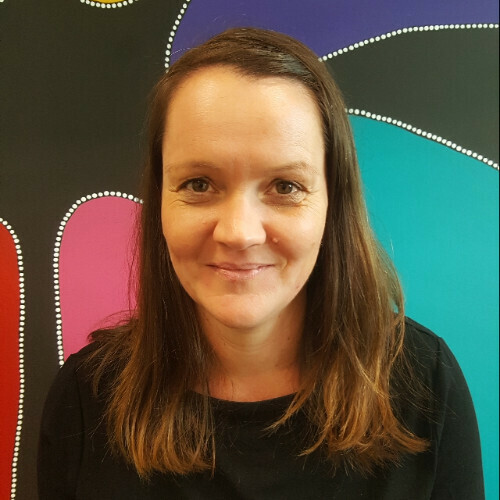
I love my life in Australia. While it’s not all peaches and cream, I can’t but be grateful for the kindness I’ve been shown from the day I arrived and the opportunities I’ve been afforded to carve out a pretty wonderful life for myself. I’ve earned it. I deserve it.
I’m proud of what I’ve done. It’s important, though, not to lose perspective of my privilege and the fact that I came here with a suitcase full of good luck. The land of the fair go has been a bit fairer to me than it would have been to other migrants, but I think a lot of us feel fortunate to be here. All in all, Australia is a pretty good place to be, right? And perhaps in some way better than the places we’ve left behind.
There is much more nuance in the perspective of migrants who might be people of colour, refugees, asylum seekers and more or less privileged, but forever looking for commonality, I propose that we accept for a moment that – no matter what our past or present – there’s a chance that a lot of migrants would not swap back to their old lives but rather stay in Australia, even sans peaches and cream.
In all my reflections, there is a constant grappling with the random allocation of factors that determine our lives and I have often wondered how that narrative of the “fair go” has come about. In what universe is it fair that I have made a life, a home and a career for myself in this country, when its very first people seem to have far less of an opportunity to do the same thing? How come we as migrants see a chance for a better life, see opportunity, see possibilities? How come we need to “close the gap” and keep failing miserably? It’s time to do something different and, in that sense, Aboriginal and Torres Strait Islander people’s call to be heard and influence the political landscape through a Voice to Parliament, that is constitutionally embedded and therefore can’t be politicised away, makes a lot of sense to me. It’s a call for a chance to a better life. Not the peaches and cream version, just a chance to have a say. Fair call, and a pretty modest ask. I didn’t find it particularly difficult to come to this conclusion, but I’ve also lived here for 20 years, my English is good and I have had a chance to immerse myself in the subject matter in all sorts of ways.
I wonder whether, as migrants who are busy making our own lives, we all have the same ability, opportunity or simply the time to delve into the issue. How do you wade through the myriad of information, true and false, to get to a reasonable position on this referendum when English isn’t your
first language? How do you unpack the messaging from both sides of the debate when it takes time to get a feel for how politics works in this country? How do you decide which TV channel to watch, which news and current affairs to take notice of? How can you possibly get a sense of what the history of this country is when the history books are written “from the boat” instead of “from the shore”? And who has time for history books anyway? And how can you relate to the plight of a mere 3% or so of the population when you barely know of them personally and haven’t had a chance to connect with the people who are asking for your support?
There is no doubt that a successful referendum would be a history-making occasion. It would be big and symbolic and the world is shaped by moments such as this. I’m German and I remember the Berlin wall collapse and the re-unification of East and West Germany. Was it the silver bullet? No. Did it need to happen? Yes, absolutely. It paved the way for a better future and enabled us as a nation to move forward. Not all peaches and cream there either, but I couldn’t imagine a world without a unified German state. Perhaps your country of origin has had a momentous occasion of its own and you might like to reflect about the parallels with this opportunity, and the responsibility we, as Australian citizens, are given come October 14. I know I want to wake up the next day in a country that has shown grace and a willingness to move forward in unity.
Everyone has the right and the responsibility to vote and, as migrants, we remember perhaps more vividly what a privilege that is. I encourage all my fellow migrants to talk, read and ask questions to inform the choice you’ve been asked to make. Engage on this topic be it community forums or news sources or the history of the world. I encourage you to say ‘yes’ to an Aboriginal and Torres Strait Islander Voice. And most importantly, I encourage you to tap into your unique experiences as migrants and encourage you to remember that prospect for a better life that drove all of us on our way to Australia.
Shouldn’t that prospect be available to everyone?
*names changed
